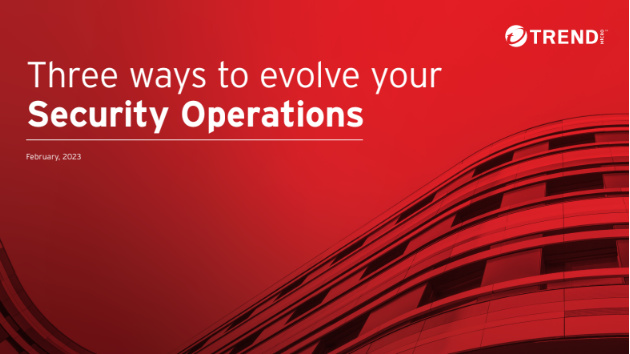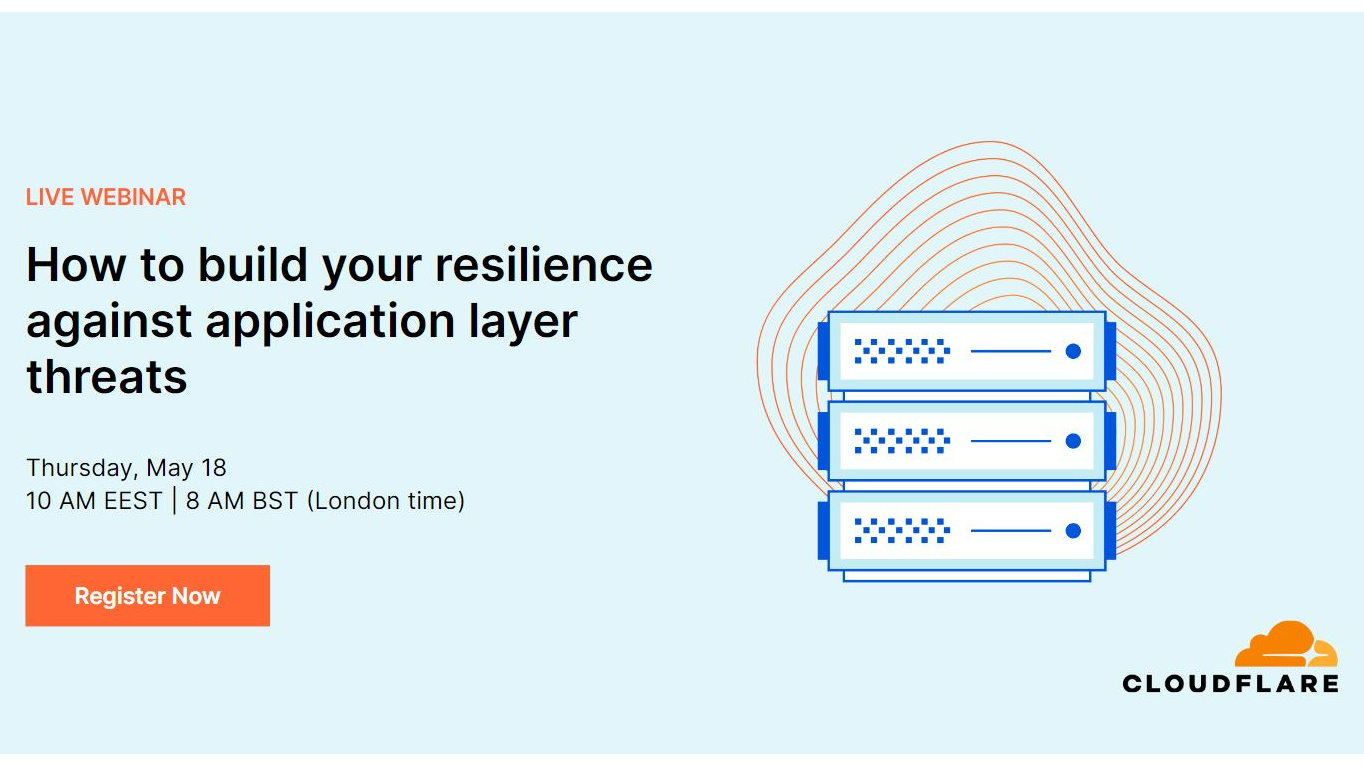How to secure your hybrid workforce
IT teams need to rethink their approach to security under our new working models

As a result of the COVID-19 pandemic, our digital environments have become more dynamic – and more complex – than ever before. While the mass shift to remote and hybrid working has enabled employees to enjoy enhanced flexibility and a better work-life balance, having workers stationed in different locations has multiplied the number of networks, applications, and user interfaces through which data is accessed.
At the same time, the pandemic has fuelled a major cybercrime wave. There has been a huge rise in spoofing and spear-phishing attempts, ransomware has become more prevalent than ever, and there seems to be a new high-profile data breach on an almost daily basis.
No organisation is immune to this evolving threat landscape. This means IT teams must rethink their approach to cybersecurity as hybrid working presents a new, unknown challenge.
The foundations of the new hybrid workplace lay on technology solutions like modern devices and cloud-based collaboration tools, grounded on security solutions that keep endpoints, data and identities secure.
With that in mind, it might be time to rethink your organisation’s hardware strategy. Devices, such as laptops, are used by employees across a number of mission-critical scenarios, from collaborating on sensitive documents in Microsoft Office to catching up with far-flung colleagues on Microsoft Teams. Providing robust protection against the latest malware and ransomware is a critical priority as organisations expect these devices and data to withstand common attacks.
Hardware-level security
Laptops equipped with an AMD Ryzen™ 6000 PRO Series CPU make helping to ensure the security of corporate devices easier than ever. While legacy devices will commonly provide gateways for cybercriminals to enter, AMD Ryzen™ PRO 6000 Series processor-based laptops offer enterprise-grade security features at a hardware level which is designed to protect against the most sophisticated of attacks.
That’s thanks, in part, to the inclusion of the Microsoft Pluton security chip. Although developed in collaboration with AMD, Intel and Qualcomm, the Ryzen™ 6000 PRO Series is the first to integrate Microsoft’s security processor architecture*, which was pioneered in Xbox and Azure Sphere and is designed to store sensitive data, such as encryption keys, with hardware that is integrated into a device's CPU.
Microsoft Pluton builds on ideas from the Trusted Platform Module (TPM) chip, which helps to improve security by preventing attackers from tampering with low-level firmware that could lead to an attack on data stored on the PC. It also enables security features such as BitLocker disk encryption, and better security for your biometric data used with Windows Hello.
However, thanks to the growing popularity of the TPM, attackers have begun to innovate ways to attack it, particularly in situations where an attacker can steal or temporarily gain physical access to a PC.
The Pluton design removes the potential for that communication channel to be attacked by building security directly into the CPU, helping to protect credentials, user identities, encryption keys and personal data.
With an AMD Ryzen™ PRO 6000 Series processor, you’re also gaining access to cutting-edge security features such as ‘Shadow Stack’ hardware protection against control-flow attacks, its own secure processor, and ‘Memory Guard’ real-time system memory encryption against physical attacks on lost or stolen laptops.
Invest in employee training
Human error is the number one cause of cyberattacks, which is why phishing attacks are constantly on the rise. While hardware-based security features will help to reduce the risk of attackers compromising your home office-based employees, cybersecurity awareness training is critical if you want to reduce the risk that employee errors pose.
Educating employees on topics such as cybersecurity best practices, personal device usage policies, and common threats and how to identify them can go a long way towards ensuring sensitive corporate data doesn’t fall into the hands of cybercriminals.
With a robust plan in place, businesses can be prepared to mitigate risk and respond to threats before they prove to be costly.
Managing and securing remote devices
Mobile Device Management (MDM) enables an employee to remotely manage and monitor an employee’s personal device. For example, it offers features such as remote wiping and location tracking if a laptop gets lost or stolen, and ‘sandboxing’ for creating a secure section on the device to be used exclusively for corporate tasks.
As a result of hybrid working, MDM has evolved from perimeter-based thinking, and IT admins must ensure they now have a comprehensive solution that enables them to manage and secure devices being used both inside and outside of the office while ensuring no loss of productivity as a result.
AMD Ryzen™ PRO 6000 Series processor-based laptops make this easier than ever. The processors feature an integrated AMD Manageability processor, which offers simplified deployment and management that is compatible with an organisation’s current infrastructure, which means no major infrastructure investments are required. You’ll be able to deploy hardware easily thanks to the AMD Ryzen™ PRO 6000 Series processor’s support for cloud-based tools such as Windows Autopilot, you’ll have flexibility thanks to the processor’s open standards and features, and management at scale with be easier than ever thanks to AMD Ryzen™ PRO 6000 Series processor’s support for modern management solutions, such as Windows Endpoint Manager.
Securing your hybrid workforce
Security must always be a priority for businesses, and with the rise in remote and hybrid workspaces, challenges and complexities will continue to grow as businesses constantly evolve to keep up with these challenges.
While ensuring your employees are clued up on the latest threats and the best practices, it’s also important that organisations look to embrace a hardware solution that will protect employees against sophisticated attacks and corporate data from being stolen.
Disclaimer
*As of January 2022, only AMD Ryzen™ 6000 Series processors include the Microsoft Pluton security processor, while AMD Ryzen™ 5000 Series processors and Intel's latest 11th and 12th Gen processors do not. RMB-24. Microsoft Pluton is a technology owned by Microsoft and licensed to AMD. Microsoft Pluton is a registered trademark of Microsoft Corporation in the United States and/or other countries. Learn more at https://www.microsoft.com/security/blog/2020/11/17/meet-the-microsoft-pluton-processor-the-security-chip-designed-for-the-future-of-windows-pcs/
Disclaimer
© 2022 Advanced Micro Devices, Inc. All rights reserved. AMD, the AMD Arrow logo, Ryzen, and combinations thereof are trademarks of Advanced Micro Devices, Inc. Other product names used in this publication are for identification purposes only and may be trademarks of their respective owners.
Disclaimer
Links to third party sites are provided for convenience and unless explicitly stated, AMD is not responsible for the contents of such linked sites and no endorsement is implied. GD-98
Get the ITPro daily newsletter
Sign up today and you will receive a free copy of our Future Focus 2025 report - the leading guidance on AI, cybersecurity and other IT challenges as per 700+ senior executives
ITPro is a global business technology website providing the latest news, analysis, and business insight for IT decision-makers. Whether it's cyber security, cloud computing, IT infrastructure, or business strategy, we aim to equip leaders with the data they need to make informed IT investments.
For regular updates delivered to your inbox and social feeds, be sure to sign up to our daily newsletter and follow on us LinkedIn and Twitter.
-
 Should AI PCs be part of your next hardware refresh?
Should AI PCs be part of your next hardware refresh?AI PCs are fast becoming a business staple and a surefire way to future-proof your business
By Bobby Hellard
-
 Westcon-Comstor and Vectra AI launch brace of new channel initiatives
Westcon-Comstor and Vectra AI launch brace of new channel initiativesNews Westcon-Comstor and Vectra AI have announced the launch of two new channel growth initiatives focused on the managed security service provider (MSSP) space and AWS Marketplace.
By Daniel Todd
-
 The business value of Zscaler Data Protection
The business value of Zscaler Data ProtectionWhitepaper Understand how this tool minimizes the risks related to data loss and other security events
By ITPro
-
 Top data security trends
Top data security trendsWhitepaper Must-have tools for your data security toolkit
By ITPro
-
 Three ways to evolve your security operations
Three ways to evolve your security operationsWhitepaper Why current approaches aren’t working
By ITPro
-
 The gratitude gap
The gratitude gapWhitepaper 2023 State of Recognition
By ITPro
-
 How to build your resilience against application layer threats
How to build your resilience against application layer threatsWhitepaper Addressing security threats with a consolidated cloud-based platform approach
By ITPro
-
 Enhancing security all the way to the edge
Enhancing security all the way to the edgeAdvertisement Feature IT decision makers shouldn’t have to choose between security, flexibility and mobility. With HPE GreenLake, it’s possible to have them all…
By ITPro
-
 Journey to SASE
Journey to SASEwhitepaper Modernize connectivity to drive business agility
By ITPro
-
 Modernising identity for a secure, agile hybrid workforce
Modernising identity for a secure, agile hybrid workforceWhitepaper Pave the way towards a modern, secure, efficient, and sustainable hybrid workplac
By ITPro
